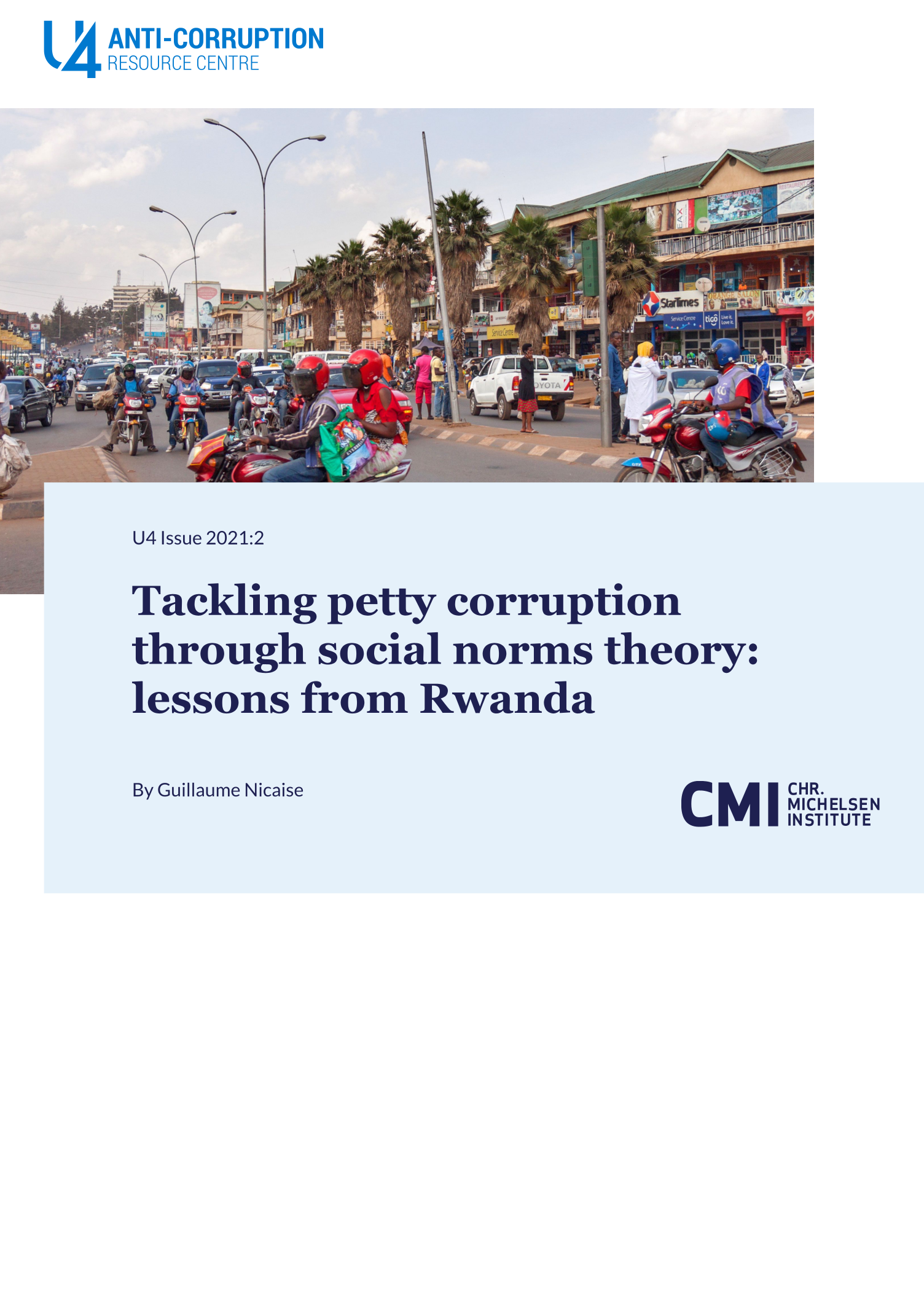Main points
- Outsourcing or decentralising the implementation of national policies may increase the potential for corrupt practices, as the co-production of norms by non-state actors may also increase the potential for a co-production of corruption.
- A multi-levelled administrative structure may present new opportunities for petty corruption, especially when few or no checks and balances are put in place to control corruption.
- The implementation gap for anti-corruption policies tackling petty corruption is wider when formal and informal governance is interlinked, unless the elements of informal governance are also considered during policy design.
- Power imbalances prevailing before project or policy implementation may hamper outcomes. Standard ‘political economy analysis’ at the stages of project design and inception do not sufficiently consider the impact of actors’ capacities and practices.
- Social mapping, which considers margins of freedom among actors at each stage of the implementation process, may help to reduce the implementation gap.
- During development aid project design, social norms theory could help development practitioners to consider the multiplicity of influences already identified, and to map out and align the various actors, entry points, pathways, and possible risks to consider in anti-corruption initiatives.



